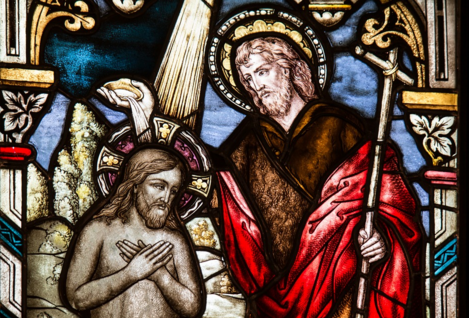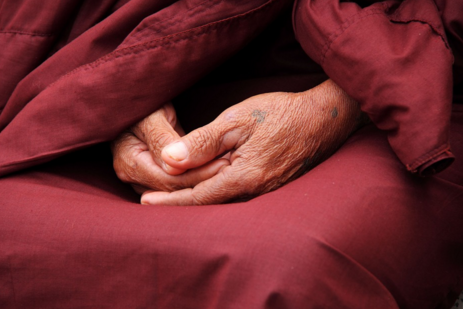What is the theory of reincarnation? The enigmatic theory of reincarnation, one that claims that a deceased person can live again in another body, is currently one of the most popular theories in the esoteric world. Every day, due to the interest aroused, more people begin to study it trying to thoroughly understand it. Courses, conferences, debates, schools of esotericism, all welcome new the followers that increase day by day in the world.
The theory of reincarnation has its roots in the seventh century BC in India, where it has transcended significantly to this day. It was subsequently spreaded in Egypt and Greece, then in the East and today it can be found virtually everywhere and even in parts of the Western world certain interpretations have been adapted to Christianity, where it has also become very popular.
15 Different Approaches to the Theory of Reincarnation

Different religions and traditions believe that after death the soul is reincarnated in a new body. In this article you will learn about some of the approaches that seek to explain this phenomenon, the theory of reincarnation.
Hinduism is based on the idea of karma: we reincarnate in different bodies depending on our actions in a previous life, as a punishment or a reward.
Buddhism states that all change is reincarnation, even during the course of one life: a child dies and is reincarnated as a teenager.
Japanese Shinto belief holds that there are spirits and souls who reincarnate only to meet particular goals, from aid to revenge.
From a non-religious perspective, the psychiatrist Ian Stevenson suggests that young children have spontaneous memories of past lives, justifying the theory of reincarnation.
In Africa, it is believed that not having children is a curse that blocks the channel of reincarnation.
Various European and Asian beliefs stated that snakes appearing in people’s homes were reincarnations of ancestors who came back as guardians.
According to various European traditions, the souls of unbaptized children are reincarnated in birds, until the day of Judgment.
In Madagascar, reincarnation respects social castes: the nobles will reincarnate as boas; the commoners will be crocodiles, and the lower members of society, eels.
For the people of northern Guinea, monkeys, snakes and crocodiles are sacred beings and incarnations of the spirits of their dead.
British folklore states that the spirits of fishermen and sailors live in the bodies of white seagulls.
The Dyaks of Borneo believe that the soul dies several times, until it finally becomes an insect or a plant in the jungle.
During the conquest of America, the natives believed the Spaniards were the reincarnation of their gods, Quetzalcoatl in Mexico and Viracocha in Peru.
The Incas expected the return of the soul to the same body by using mummification.
Cannibalism, which matured formerly in the Pacific, implied that thereby the soul of the dead was absorbed and added to oneself.
The Alaska Tlingit believe that before any birth, the reincarnated soul comes in the dream of the mother to ask for permission.
Read also: How Many People In The World Believe In Reincarnation?
While the theory does not exceed the hypothetical, it is still largely able to provoke all sorts of thoughts. Therefore, the objections of opponents and arguments of supporters arise.
Objections to the theory of reincarnation

One of the major objections presented against the theory of reincarnation is the great global population explosion.
Where were all the souls that now occupy more than 6 billion human bodies inhabiting the planet, when in past times there were only a few million people living in the world? How can this be explained, if the theory states that souls are eternal and have always existed?
In his article A critique of the theory of reincarnation, the Spanish author and educator Jesús González Losada points out: “If that eternal and indestructible spirit that we all have is not created when we are born, then, how and where did that huge number of spiritual people appear?”.
Another discrepancy is related to the constant changes of identity and genetic roots in the succession of lives, because the family of an individual in a particular life; parents, wife, children will have different roots in the next or previous incarnations. That is, such an individual, passing through many lives could potentially have on each of these lives, a different family, which contradicts the principles of various religions. The souls are reincarnated in certain bodies and certain times without being tied to genetic roots. The body of a newborn child in Europe today, for example, could represent the space occupied by the soul of an African woman who lived 500 years ago.
As for regressions sessions of hypnotism, which is one of the strongest arguments presented by this theory today, critics attribute these alleged memories of past lives to certain peculiarities of the brain. They argue that the hypnotized simply appeal to their own memory, passages from such past lives and what they remember in those sessions, are but memories, sometimes based on dreams or in forgotten episodes, from frustrated yearnings, distant readings, or certain stories that have touched them at some point in their lives; they have settled in their subconsciousness, to be evoked by the mind afterwards.
Arguments for the theory of reincarnation

Meanwhile, supporters also argue:
With regard to the population explosion, they argue that there are many more souls than people on Earth. This is not the only world and souls exist in many dimensions. None of us has started on this planet. Earth is rather a kind of school.
The problem of changing identities and roots along successive lives, must be analyzed from an evolutionary point of view: the individual becomes more perfect to the extent that it assimilates the new lessons in life and gets multiple experiences with its peers over time. Learning will be vast. The famous Greek philosopher and mathematician Pythagoras said at the time: “We need many lives, clothed with many bodies, being born, dead and reborn many times to reach the ultimate goal of perfection, which is what the gods have reserved for us”.
With regard to past-life regression sessions of hypnotism, one of the most famous cases is the prestigious American psychiatrist Brian Weiss, who after helping a patient through hypnotic sessions, even from a stand of skepticism, was fully convinced that she had indeed remembered her past lives. Weiss gave credit to the theory of reincarnation, which before this experience would have never supported, and later, risking his own reputation as a scientist, he wrote and published the book “Many Lives, Many Masters” based on the experiences that changed his life.
Read also: 15 Questions About Reincarnation Answered
Theory of Reincarnation: Some questions
However, there are still questions about the theory. For example, if the reincarnation of souls is necessary to clean the evil through atonement, then what was the first evil soul, how, when and why it became evil? The theory of reincarnation offers no concrete answer to this problem in particular. But many religious currents focus on these kind of issues.
Despite this, and although the it still moves amid speculation, the theory of reincarnation continues gaining followers in the world, especially among the less skeptical. Keep reading this website to learn more about reincarnation and the afterlife; and follow us on social media to get updates.







1 comment
What people fail to see in reincarnation, is the history of “religion” itself.
In a “visual” picture, the control factor (what we call today – religion) had been shoved down the throats of the common people for more than 2000 years prior to reincarnation’s appearance in the picture. The Egyptians did NOT believe in reincarnation … in fact, the Egyptians and Sumerians couldn’t even agree on what the afterlife was all about. One would tend to think that THE understanding of life after death would have been more clear, the further you went back in time … but it isn’t. Why isn’t it clear? It wasn’t about “truth” … it was about one word … control. The overall picture given is NOT connected to “truth” … it is connected to antisocial personality disorder, and, CONTROL of the masses.
Look at today … same picture. “We know what’s going on up in the sky … follow us.”
How far back does this “control” picture go? THAT is what YOU need to look into – welcome to constructivism. I went back 12,000 years (in round numbers) and found 2 phases … we are in the middle of phase 2.
The picture isn’t about life after death … it’s about all of the interpretational lies we have been fed for millennia for control sake. Time to wake up.